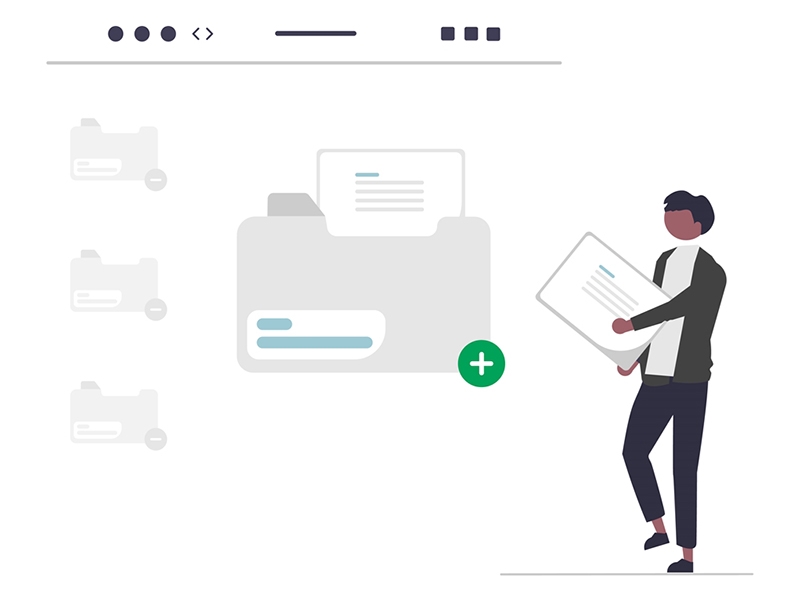Is Your Data Secure?
Everyone has data or information that needs to be protected to some degree. Whether it's personal information or highly sensitive documents, keeping your data secure is essential to keeping cybercriminals from accessing your information.
This includes things that are saved to a device or account, as well as physical documents you may have at work or home. There are many ways to keep your data secure, such as proper data management and protection, the 3-2-1 rule and the clean desk and clear screen policy.
From handling to storing your data, the way we manage our data is something that should be well thought about. Highly sensitive data should not be stored on a personal desktop, laptop computers or individual-use removable media (e.g., flash drive) since these devices tend to be left in unsecure environments. Any sensitive data saved to an electronic device/media should be encrypted and password protected. You should routinely check your devices for any data that is unsecure, as well as report any misuse of said data.
Regarding data and storage, the 3-2-1 rule means you should have three copies of your data; two to be stored on different media platforms, and one offsite (e.g., physical copy) or in the cloud. Having multiple copies of your data ensures that you do not lose your information in case of a failed back up or accident. While three is generally a safe number, in some cases it may be beneficial to have more than three copies of your data.
The university has a clean desk and clear screen policy, which requires employees to keep highly sensitive data secure and computing devices locked while away from their desk. This rule also applies to any physical documents that may be on your desk, which should be secured in an appropriate drawer or filing cabinet when unattended. By keeping data and devices locked and secure, it reduces the risk of misplaced, stolen or unauthorized access to your information.
October is National Cybersecurity Awareness Month! The month of October is dedicated to providing resources and awareness to help people around the country stay safe online. Everyone can take simple steps to protect themselves when using technology and the internet such as identifying and reporting phishing emails, using MFA and keeping your software updated. For more tips and information on how you can stay cyber safe, visit the IT Services cybersecurity checklist or the Cybersecurity & Infrastructure Security Agency (CISA).
Topics
Contacts
Ele Powell, assistant director of administrative communications
Division of Finance and Administration
479-718-1918,
elep@uark.edu
Headlines
Four Students Named Goldwater Scholars; Two Earn Udall Honorable Mentions
Four U of A students have received the prestigious Goldwater Scholarship, an award for top students in mathematics, science, and engineering.
Cross-Campus Collaboration Culminates in New Outdoor Geological Installation
Grand opening event to celebrate the new GeoLab installation at the U of A’s Gearhart Hall courtyard is set for May 3. The installation will be open to the public year-round.
First Students to Use Online Degree to Hone Nursing Leadership, Elevate Patient Care
Hanna Baxendale and Wendi Kimbrell will begin coursework in the Doctor of Nursing Practice-Executive Master of Business Administration program offered by the Eleanor Mann School of Nursing and Walton College.
Join the Office for Sustainability on a Final Cruise to Campus
Cruise to Campus Wednesdays have fostered a gathering space for individuals interested in biking to campus. Drop by the Old Main Lawn from 7:30-10 a.m. Wednesday for coffee, something to eat and conversation.
Fay Jones School Student Ambassador Program Gives Voice to Design Students
The student ambassador program at the Fay Jones School of Architecture and Design is built to connect top design students with their school, its alumni, its future students and others inside and outside the school.





